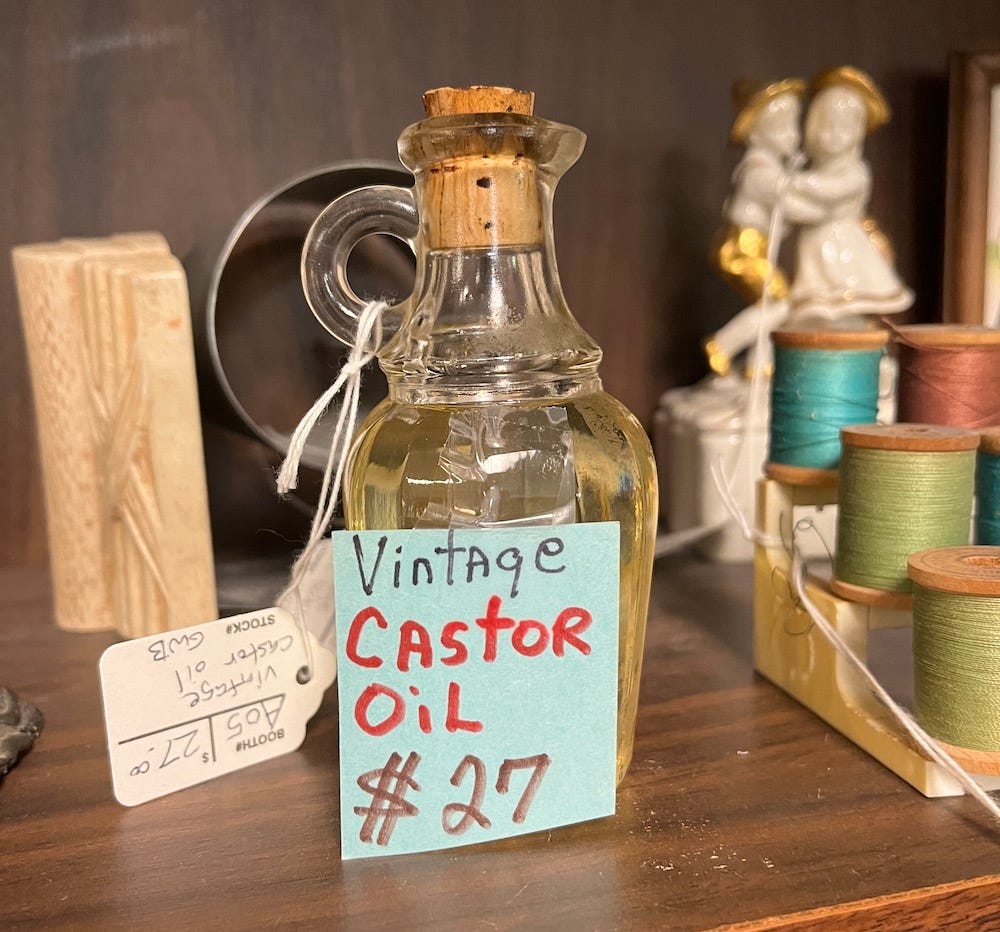Dear Friends:
Greetings from 47! I had a birthday Tuesday, which the internet told me corresponded with the new moon entering Gemini, a ‘dark, wet, fertile time for setting intentions.’ Also, Mercury, which I’m told is my sign’s ruler, has also just entered Gemini:
In astrology, Mercury represents the principles of communication, mentality, thinking patterns, rationality/reasoning, adaptability and variability. Mercury governs schooling and education, the immediate environment of neighbors, siblings and cousins, transport over short distances, messages and forms of communication such as post, email and telephone, newspapers, journalism and writing, information gathering skills and physical dexterity.
I’m into astrology as much as Chandler was into Janice. If anything, I like the way it can suggest possibilities. I am, however, a big huge fan of Mercury, the way I respect and admire all trickster gods. (Lewis Hyde’s Trickster Makes this World: Mischief, Myth, and Art is required reading.) As I wrote in the chapter of this memoir I’m revising, Trickster doesn’t care to save face. Trickster bears his ass, which makes him a hero.
O Celestial Bodies of Astrology: I intend more trickster heroics in this my 48th year living under you.
Yours:
Dave
Endorsements
1. A Man on the Inside (Netflix)
In just about every episode of this new(ish) Michael Schur show, I cried a little. The story: Ted Danson is a widower college professor who ends up working as the eponymous spy for a private investigator, planted in a senior home in what seems like the Nob Hill part of San Francisco. The plot is a little ludicrous, but it’s a show that wants to think a lot about death and perseverance after loss, and finding new connections with friends to stave off loneliness and isolation. All that shit I find very moving, plus the local setting is a nice touch. The show is way less cute and clever than The Good Place, which Schur and Danson did together. And it’s an adaptation of a Chilean documentary I now want to watch. Anyway: 8 easy episodes, and a new season just began shooting.
2. Joanna Cassidy
A recent episode of Matlock reminded me how much I love this great character actor. Who’s Joanna Cassidy? If you’re a Gen-X elder, you likely know her from this:
But if you’re a Gen-X lil’ miss like me, you definitely know her from this:
Yes, Sue Ellen, she’s the Rose you want to be right on top of that for. She’s also Brenda’s mom on Six Feet Under, played a Vulcan once, and did a great turn as a brassy broad owning a fancypants honkytonk in S10E09 of Murder, She Wrote. Whenever Joanna Cassidy pops up on a screen, it’s like a new Beyoncé album dropping, or when your soccer team finally scores a goal. It’s like some balance is restored. I love her for soft steeliness, like a letter opener made of pewter. She’s like if Karen Black got some effective HR training. ‘Joanna has created a successful career in film and television with uncommon ease,’ says her website, which I guess says it all. Here she is with Taz, wearing an ostrich-leather jacket and branded merch:
7 Writing Prompts You Won’t Hate
My thing with writing prompts is that they too often feel like improv. Okay so we’ve got Dua Lipa and … Dracula getting boba? Or, to be less cute, here are some actual prompts from the textbooks on my office shelves that send me to paralysis as a writer:
Begin a story with the line ‘I never told this to anybody but…’
It is said that Adolf Hitler, one of history’s truly evil beings, loved music, including popular music like Cole Porter, and that he was a wonderful whistler. Pick a wicked figure and try to find or create some sympathetic talent or good habit. What happens?
Make an exhaustive list of historical events or figures who have long intrigued you. Do some research and then write a short story that centers on one of the events or figures.
Write a story with no main characters, only minor ones, none of whom is mentioned more than twice. For setting, take a beach on an out-of-season Sunday afternoon. For theme, the unbridgeable isolation of the human soul.
Take an ordinary and domestic scene that you have already written and turn it on its head by inventing a magical event to occur in its midst.
Take a few paragraphs of the story you are writing and substitute an animal or a monster for one of the characters.
Set a short scene in a place as banal or characterless as you can think of. Make the dialogue bizarre.
The paralysis comes, I think, from having to work inside other people’s ideas of what’s interesting. Or maybe it’s a staleness from having looked at, and away from, writing prompts for 20 years now? You may as well ask me to find an old photograph and write the story of what I see. What a horrorshow.
Two things I should note. One: writing prompts aren’t really for me, but for students of writing. (Sure, yes, we’re all lifelong students of writing but you know what I mean.) I, too, was once someone who wanted to write but didn’t know what to write about. I just loved reading fiction and wished I could do it. Prompts gave me a way in, and a way to try out certain formal effects (1st vs. 3rd person, lots of dialogue vs. no dialogue, etc) I wouldn’t have otherwise known what to do with.
Two: my dislike of prompts is about control, and not wanting to cede it. Don’t tell me what to write, Janet Burroway!, etc.1 But there is something in prompts that can shake up your process, or voice, or style. Here I think about homosexual trickster genius John Cage.
Here’s Lewis Hyde on Cage’s pursuit of chance in his art:
It is especially by our ‘likes and dislikes,’ Cage says, that we cut ourselves off from the wider mind (and the wider world). Likes and dislikes are the lapdogs and guard dogs of the ego, busy all the time, panting and barking at the gates of attachment and aversion and thereby narrowing perception and experience. Furthermore, the ego itself cannot intentionally escape what the ego does—intention always operates in terms of desire or aversion—and we therefore need a practice or discipline of non-intention, a way to make an end run around the ego’s habitual operations....
In recommending non-intention, [Cage] once explained, ‘I’m not saying, “Do whatever you like,” and yet that’s precisely what some people now think I’m saying.... The freedoms I’ve given [in a musical score] have not been given to permit just anything that one wants to do, but have been invitations for people to free themselves from their likes and dislikes, and to discipline themselves.’
Writing prompts, like tarot, or the I Ching, or reading online about a moon entering a part of the sky, can throw a bit of chance at you, free you of chasing after your likes and dislikes.
If those are the lapdogs of the ego, as Hyde says, mine get more pampered than the Queen’s corgis.
Weeks ago, after finishing the draft of the memoir, I sat down and tried to come up with some writing prompts I could use to make interesting things happen while revising. First, I laid out a few objectives. I wanted prompts that would:
Get me out of my intentional head and give me some space and toys to play with
Not require too much memory or selection
Put emphasis on association and leaping
But also: attention and close seeing
That second one is key for me. I don’t have a great memory, and I’m a terrific ditherer, so prompts that being with ‘Think of a’ tend to freeze me up. Another need was for prompts to be prompts into ‘my own writing’ and not exercises in themselves, so I’m using the acronym TKW for ‘then keep writing’, meaning see where what you’ve already done can take you.
Here are the prompts I came up with. Maybe you’ll hate them? Maybe prompts are like toothbrushes, everyone needing their own.
Write song lyrics about an object within eyeshot. Turn it into sentences, TKW.
Find a random word in the thesaurus. Write 4 sentences that each start with that word, TKW.
Take a random ¶ from your manuscript and rewrite it with the sentences in reverse order. Play with it until you like it, TKW.
Grab a book of poems and take a line or two. Copy it word for word, TKW.
Write a lie or thing you don’t believe about your topic. Keep the lie going until you almost convince yourself, TKW.
See in your mind an object or person connected to your topic. Start describing it as if to someone who’s never seen it before. Keep going for a whole ¶, 200 words or more. Save only the final sentence, TKW.
Use Wikipedia’s Random Article link to land somewhere unexpected. Read the article and come up with a question you still have. Type it out, then ask the same or a related question about your topic. Write the best answer you can, TKW.
This week’s thing I didn’t buy at the antique store is this ‘old’ oil:
Here’s an insider-baseball story for you folks in MFALand / LitMagLand. It’s about Narrative Magazine, which has always been the evilest magazine ever made by shitheads owing to its astronomical reading fee. (Currently $26 just to get them to read, and most likely reject, your story.) Anyway, years back, maybe around like 2010 or so, I was looking up Narrative’s usurious reading fee and found on the website the winners of their latest fiction contest. I forget who won, but second place—and a prize of $1000—went to Janet Burroway. Why was Janet Burroway entering online writing contests after 7 editions of her fiction-writing textbook? Why was Narrative helping boost the careers of writers like Janet Burroway? How many submissions by non-Burroways did the editors reject, and how much profit did those reading fees land them? These are unanswerable questions I return to any time I think about online writing contests.















Your prompts are infinitely better than those weird ones. I imagine that even the act of coming up with your own prompts engenders leaps and playfulness. Thank you for the inspo.